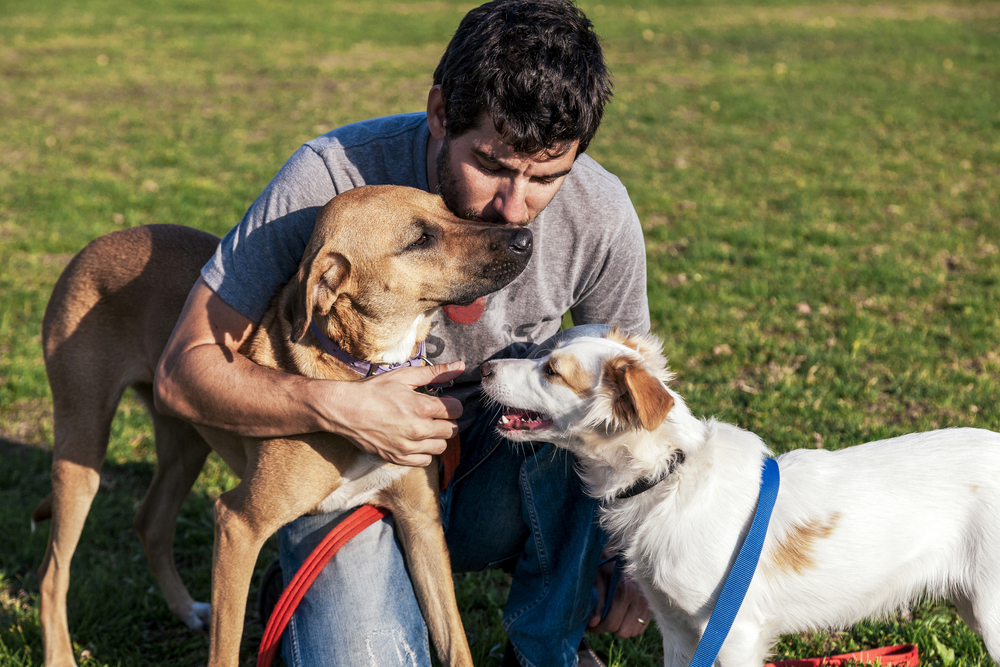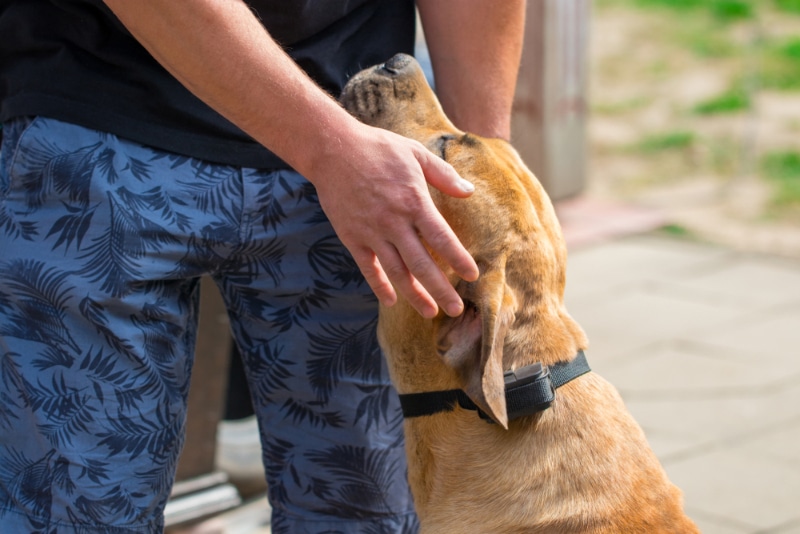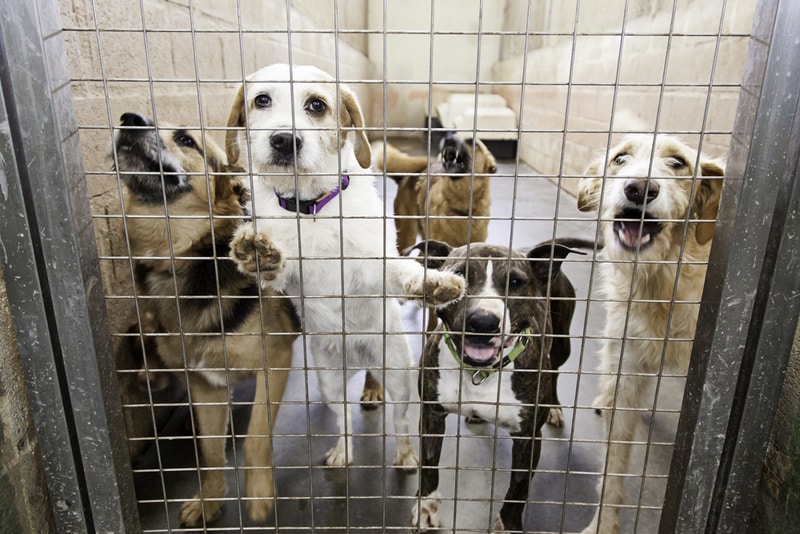Adopting a dog can be an amazing, rewarding experience, but it’s not one to be taken lightly. Dogs need an appropriate environment to thrive, and some breeds aren’t suitable for small spaces or apartments. If you’re wondering whether you’re ready to adopt a dog, this article is written just for you. Here are 10 questions to ask yourself to help you find out if you should adopt a dog.

The 10 Questions to Help You Know If You Should Adopt a Dog
1. Do I Have the Space for a Dog?
One of the first questions you should ask when considering adopting a dog is whether you have the space for one. Do you rent or own your home? If you rent, are you allowed to have a dog, and if so, are there size or breed restrictions?
Another thing to consider if you are a renter is whether you’ll need to move in the future. Depending on where you live, finding pet-friendly rentals can be challenging. Your living situation will also impact what size and type of dog you can adopt.
Large, active dogs will do best with a yard, while breeds known for barking a lot probably shouldn’t live in an apartment.
2. Can I Afford to Care for a Dog?
Owning a dog can be an expensive commitment. Most dogs live at least 10 years or more, and their care costs can add up. Veterinary care, supplies, food, grooming appointments, and training classes are just some expenses you can expect during your dog’s lifespan.
Before you commit to adopting a dog, take a realistic look at your financial situation. You need a plan to maintain routine care and a way to pay for emergency vet bills that might pop up.

3. Do I Have Time to Take Care of a Dog Properly?
What does your daily, weekly, and monthly schedule look like? Do you work from home, or are you away most of the day at school or working? Caring for a dog takes time, and dogs are not pets that generally tolerate being left alone frequently.
If you lead a busy life, what is your plan for ensuring your dog gets the attention and care they need? Will you need to budget for pet sitters or boarding as part of your regular care costs?
4. How Does the Rest of the Family Feel About Getting a Dog?
If you live alone, the only person who needs to be answering these questions is you. However, if you share your home with other people, it gets more complicated. Adding a dog to the household impacts everyone living there, and you need your family or roommates to be on board.
Even people who aren’t involved with caring for the dog still need to be okay with adding noise, fur around the house, and the occasional doggy odor to the house. Plus, everyone will need to pitch in to keep dangerous items out of reach and shut the doors so the dog doesn’t escape.

5. Do You Have Other Pets?
When adopting a new dog, you’ll also want to consider any other pets in the household. If you already have a dog, do they have a history of not getting along with other canines? If you aren’t sure how your dog feels about other dogs, try to arrange some puppy playdates to evaluate the interactions.
Cat owners should also think hard before introducing a dog to the family. Stressed cats can develop multiple medical and behavioral problems. You’ll need to determine whether your resident pets will be okay with a new dog and how to introduce them safely.
6. Are There Dog Allergies in the Household?
Unfortunately, pet allergies are common and can make life miserable for those who suffer from them. If someone in your household has dog allergies, it will certainly be a factor in your decision to adopt. Despite what you may have heard, there’s no such thing as a genuinely hypoallergenic dog breed.
However, some dogs shed less than others and have coat types less likely to trigger allergy symptoms. You can also take steps at home to minimize the allergens in the environment. An important part of the equation is also the degree of sensitivity you or the others in the house may have as they do vary. In some cases, it’s not impossible to adopt a dog if there are allergies in the household, but it is certainly more complicated.

7. Do You Have Someone Who Can Care for the Dog Long-Term if You Can’t?
Before adopting a dog, you’ll unfortunately need to consider some worst-case scenarios. No one can predict the future, but you need to prepare for it. If you adopt a dog, what happens to your new pet if you can no longer care for them long-term?
Health issues, accidents, or job loss can all make it hard or impossible to care for a dog. If that happens, do you have someone to help you care for your dog or adopt them from you?
8. What Type of Dog Best Fits Your Lifestyle and Personality?
Every cute dog you find on your Instagram reels comes with their own personality and care needs. Before you fall for that adorable face, you must think hard about what you’re looking for in a dog.
Not every breed is suitable for all homes or lifestyles. For example, first-time dog owners should probably avoid dogs known to be stubborn, independent, or hard to train. Look for a dog that matches your lifestyle, activity level, and even your personality for the best chance of a successful pairing.

9. What Age Dog Is the Best Fit?
Puppies are adorable but can be a lot of work! Housetraining, obedience training, and socialization, not to mention dealing with the dreaded chewing phase, place an extra burden on dog owners. If you’re considering adopting a puppy, you’ll need to be prepared for the stress.
Adopting an adult dog means you’ll probably skip a lot of the training and development but also will have less control over shaping their personality. Senior dogs can make calm, lovely pets, but you have to be prepared to deal with chronic health issues and end-of-life care. As you consider whether to adopt a dog, think about which age or life stage best fits your family.
10. Where Do I Go to Adopt a Dog?
Once you’re ready to take the plunge, the final question is, where do you go to adopt a dog? Almost every city or county has a public animal shelter with dogs available for adoption. You can also look for private rescue groups in your area.
If you’re interested in adopting a purebred dog, a breed-specific rescue is an option. You can also look for adoption events at parks or pet stores. Try to arrange for everyone in the family, including pets, to meet an adoptable dog you’re considering before you bring them home.


In Conclusion
If the answers to these 10 questions led you to conclude you’re ready to adopt a dog, congratulations! Before bringing your new pet home, ensure you’re prepared with all the dog gear you need, including a bed, crate, bowls, and toys.
Make an appointment with your vet for a quick checkup and ask any questions you might have about helping your dog adjust. Most importantly, establish consistent routines and expectations for your adopted dog from day one to help them feel secure in their new home.
Related posts:
Featured Image Credit: hedgehog94, Shutterstock



















